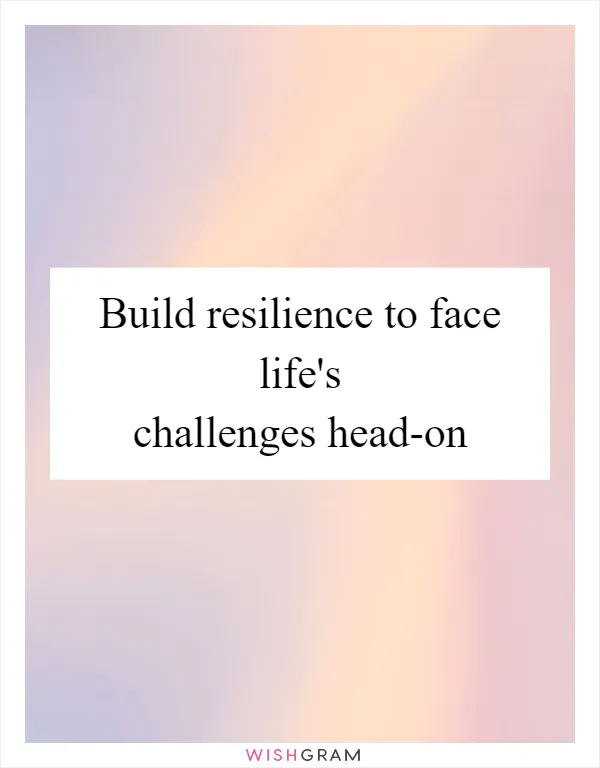Build resilience to face life's challenges head-on
Building resilience is a crucial aspect of self-improvement, as it equips individuals with the necessary tools to face life's challenges head-on. Resilience refers to the ability to bounce back from adversity, setbacks, and difficult situations, emerging stronger and more determined than before. It is a quality that can be developed and nurtured through various strategies and practices.
One of the key elements in building resilience is cultivating a positive mindset. This involves reframing negative thoughts and focusing on the potential for growth and learning in every situation. By adopting an optimistic outlook, individuals can develop the resilience needed to overcome obstacles and setbacks. This mindset shift allows one to view challenges as opportunities for personal development and growth, rather than insurmountable barriers.
Another important aspect of building resilience is developing effective coping mechanisms. This involves identifying healthy ways to manage stress, such as engaging in regular exercise, practicing mindfulness and meditation, or seeking support from friends, family, or professionals. By implementing these strategies, individuals can better navigate through difficult times, reducing the impact of stress on their overall well-being.
Furthermore, building a strong support network is crucial for resilience. Surrounding oneself with positive and supportive individuals can provide a sense of belonging, encouragement, and guidance during challenging times. Sharing experiences, seeking advice, and receiving emotional support from trusted individuals can significantly contribute to one's ability to face life's challenges head-on.
Additionally, setting realistic goals and maintaining a sense of purpose can enhance resilience. By having clear objectives and a sense of direction, individuals can stay motivated and focused, even in the face of adversity. These goals can act as a guiding force, providing a sense of meaning and fulfillment, and helping individuals stay resilient during difficult times.
Moreover, self-care plays a vital role in building resilience. Taking care of one's physical, emotional, and mental well-being is essential for maintaining resilience. This includes getting enough sleep, eating a balanced diet, engaging in activities that bring joy and relaxation, and practicing self-compassion. By prioritizing self-care, individuals can replenish their energy and strengthen their ability to face life's challenges head-on.
Lastly, embracing change and adapting to new circumstances is crucial for building resilience. Life is full of unexpected twists and turns, and being able to adapt and adjust to these changes is essential. By cultivating a flexible mindset and being open to new possibilities, individuals can navigate through uncertain times with resilience and confidence.
